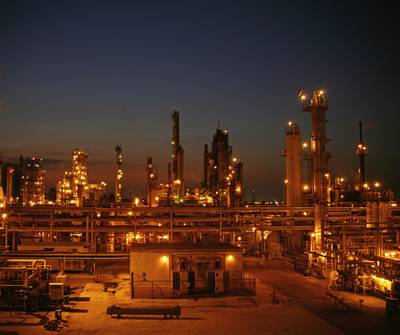Petrobras Defends US Refinery; Still Calls Deal Bad
Brazil's state-run oil company, Petroleo Brasileiro SA, on Tuesday defended its 2006 purchase of a refinery in Pasadena, Texas, even as it admitted the deal caused the company to lose money.
At a day-long Brazilian Senate hearing, Chief Executive Maria das Graças Foster explained that Petrobras, as the company is known bought the refinery in hopes of maximizing returns on Brazilian oil shipped to the United States.
Despite making a good returns on its oil in the early years a world economic downturn starting in 2008 reduced the amount the company could earn from the refinery's gasoline and diesel output, she said.
"With time the project developed a low probability of returning its investment," she said. "In the end you can't call an investment that has seen Petrobras write off $500 million worth of value on its balance sheet a good deal."
Foster's comments came as Brazilian lawmakers seek to learn more about a purchase that in recent weeks has drawn heavy criticism. Because of the refinery's allegely high cost, and losses incurred by the company at the refinery afterward, some critics have questioned the transaction and tried to tie it to a widening corruption scandal at Petrobras, as the company is known.
Some of President Dilma Rousseff's opponents in Congress are pushing for a formal investigation into the purchase, made when Rousseff was chairwoman of Petrobras. Rousseff's approval rating has slipped in recent weeks and the corruption scandal and other problems at Petrobras threaten to hurt them further as she seeks reelection in October.
Petrobras stock fell sharply in afternoon trading at the Sao Paulo stock exchange. Its preferred shares, mirroring losses by many other Brazilian stocks, dropped 3.3 percent to 15.41 reais, on track to its biggest one-day drop in seven weeks.
On March 20, Paulo Roberto Costa, Petrobras' former refining and supply chief, was arrested in connection with a money-laundering investigation. Last week, Brazil's federal police force executed nearly two dozen search and arrest warrants in the case, including at Petrobras headquarters.
Costa has been charged with no crime, but a judge has authorized his being held in a Federal Police lock-up. The case, known as Operação Lava Jato, or "Operation Car Wash", has led to the resignation of the vice president of Brazil's lower house of Congress, a leader of Rousseff's Workers' Party.
Prosecutors in Brazil, the United States and the Netherlands are also looking at more than $100 million of bribes allegedly paid to Petrobras officials by SBM Offshore NV, a Dutch company that leases oil production ships.
At Tuesday's hearing, Foster attacked claims by opposition politicians that Petrobras paid more than 20 times the true value for Pasadena Refining System Inc. She also said an internal investigation of the purchase found no wrongdoing by Petrobras employees in the purchase.
Foster broke down for lawmakers the $1.25 billion she said Petrobras paid Belgium's Astra Oil supposedly paid for the 100,000-barrel-per-day (bpd) refinery.
While $554 million paid for refining assets, another $341 million were for an oil trading unit. The rest of the price, she said, was for related infrastructure and legal costs.
Since the original purchase, Petrobras spent an additional $685 million on repairs and improvements to the refinery. Coupled with the original price tag, those costs have made it difficult for Petrobras to make a return on its investment, Foster said.
Part of the controversy stems from disagreements over how much privately-held Astra originally paid for the refinery.
Critics say Astra paid $42.5 million to Crown Oil for Pasadena in 2005, a year before selling half of the facility to Petrobras for $360 million. Petrobras bought the rest of the refinery from Astra in 2012 for $821 million.
Foster, though, disputed the numbers. She said Astra actually paid $360 million to Crown oil for the Pasadena refinery, 8.5 times more than what critics allege.
Astra could not be reached for comment.
The premium paid by Petrobras, Foster said, gave Petrobras control in running the refinery for the partnership. The high price also reflected refining margins that were rising along with a world-wide commodities boom.
"We had a lot of control over Astra," she said. "Petrobras used all care when it made the deal, but it had to pay for that control."
Despite a drop in returns because of the global economic slow-down starting in 2008, the refinery has rebounded, she argued. The advent of U.S. shale oil and a lack of global refining capacity have caused a boom in U.S. refining.
"Because of the shale oil we are doing very well," Foster said. The Pasadena refinery made a profit of $40 million to $50 million a month in January, February and March, she said.
(Reporting by Jeb Blount and Anthony Boadle in Brasilia)







